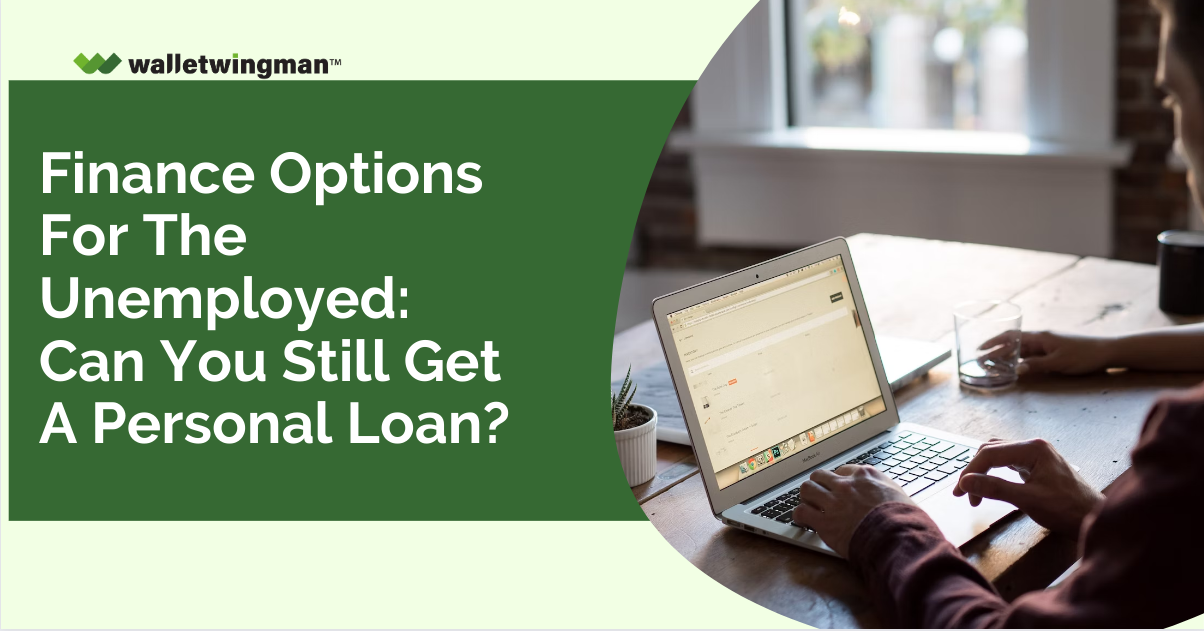Navigating today’s economy without a job is challenging enough. But being unable to secure financing when you need it most can be truly frustrating. If you’re seeking a personal loan without job prospects on the horizon, you’re not alone—and you’re not without options.
Traditionally, the unemployed have faced more rigorous loan approval processes. Even when making it past preliminary evaluations, they typically qualify for lower loan amounts than their employed counterparts. However, there’s good news: many financial institutions have made significant efforts to address these inequalities. It’s now easier to get a loan without job history than it was just a few years ago.
If you’re unemployed and need financing, this guide is for you. We’ll explore viable finance options for unemployed individuals, focusing on how to secure funding despite having no regular paychecks. Let’s start by understanding exactly who constitutes “the unemployed” and what personal loans are.

Who Qualifies as Unemployed?
The first step in determining whether you can secure loans for unemployed people is understanding who belongs in this category. Many consider the unemployed simply as people without paid jobs, but the definition goes deeper.
You’re considered unemployed if you meet these three criteria:
- Currently not in gainful employment
- Actively looking for a job
- Able and willing to work
This definition excludes minors (people under 18–21 years, depending on your state) and retirees. It also exempts individuals who legally qualify for disability benefits due to physical or medical limitations.
This distinction is important because personal loan requirements may vary considerably depending on whether an applicant is:
- Truly unemployed
- Living with a disability
- A senior citizen
What Are Personal Loans?
A personal loan refers to money you borrow for personal use. These versatile financial products can be utilized in numerous ways, including:
- Buying a vehicle (for private or commercial use)
- Home renovation or improvement expenses
- Moving expenses
- Wedding costs
- Vacation expenses
- Retail purchases
- Medical bills
- Funeral costs
- Debt consolidation
- Unexpected expenses
The concept of personal loans has existed long before modern credit systems. With the rise of financial technology, mobile applications have democratized access to personal loan no-income options. The gradual demand for these services has also seen a rise in apps that help people borrow money, such as Chime. Today, you can apply for credit simply by installing an app on your smartphone.
What Personal Loans Are Not
Personal loans are often confused with personal lines of credit (PLOC), but they’re quite distinct. A personal line of credit operates like an unsecured revolving account, allowing you to spend against a preset limit. Your available credit decreases as you spend and can be replenished when you make payments.
Personal loans also differ from other installment loans, such as mortgage loans, auto loans, and student loans, even though you can use personal loans to settle these debts partially or completely.

Can You Access Personal Loans When Unemployed?
Obtaining a no-income personal loan might have seemed impossible in the past, but times have changed. Today, it’s possible to secure credit even without active employment income.
However, there are specific criteria you’ll need to meet. These conditions determine factors like your eligible loan amount, applicable interest rates, and repayment periods.
1. Alternative Income Sources
Lenders understand that unemployment doesn’t necessarily mean you have zero income. While you may not receive a regular paycheck, there are multiple ways you might still generate money. These alternative income streams can significantly improve your chances of obtaining personal loan low income options.
Lenders may consider these income types when pre-approving you for a personal loan:
- Unemployment benefits
- Disability payments
- Alimony and child support
- Inheritance payouts
- Monetary gifts
- Pension income
- Social Security benefits
- Rental income
- Investment returns (stocks, bonds, etc.)
- Regular payments from a settlement
Most of these income sources comprise nontaxable payments, which are advantageous when applying for a loan. However, note that your eligible loan amount will typically depend on the size of your expected payouts.
2. Secured versus Unsecured Loans
When seeking a personal loan without job history, understanding the distinction between secured and unsecured loans becomes crucial.
Secured loans (or collateralized loans) require some form of collateral before a lender will advance credit. You might borrow money against assets such as:
- Real estate property (building or land)
- Vehicles (car, motorcycle, or boat)
- Savings accounts
- Certificate of Deposit (CD) accounts
Unsecured personal loans don’t require collateral as a borrowing condition.
It’s generally easier to access a personal loan for unemployed individuals with collateral than without. This is because the lender can recover the collateralized asset to settle any defaulted loan, reducing their risk.
3. Types of Lenders
Various financial institutions provide loans for unemployed people. Your options include:
- Traditional banks: Generally implement stricter loan approval requirements, especially for unemployed applicants seeking unsecured loans
- Credit unions: Often offer more flexible terms than traditional banks
- Online lenders: Platforms like Chime and Cash App have simplified the loan application process, making it easier to access financing without traditional employment
- Friends and family: May offer more favorable terms, especially if you have financially secure individuals in your social circle
- Peer-to-peer lending: Loan agreements between businesses or individuals in the same industry
4. Finding a Co-signer
A co-signer is someone who agrees to add their information to your loan application. They’re typically parents, close relatives, or friends who help facilitate finance options for unemployed individuals.
Co-signers provide key information during the application process that lends credibility to your application, including:
- Their annual income
- Credit score
- A formal undertaking to settle the loan if you’re unable to repay
For a co-signer to qualify, they must:
- Have reached the age of majority
- Be legal citizens and permanent US residents
- Meet specific lender requirements (income thresholds, credit rating, etc.)
Note that a co-signer differs from a guarantor. A co-signer may become responsible for every missed payment, while a guarantor only becomes liable when you default completely.
5. Adding a Co-borrower
Even with a co-signer, you might face challenges obtaining a personal loan low income option. That’s where a co-borrower can be valuable.
A co-borrower is someone with whom you jointly seek financing. Unlike a co-signer, they benefit directly from the borrowed amount rather than just pledging to pay if you default.
When applying with a co-borrower, lenders analyze each applicant’s credentials individually. Your chances of approval increase if your co-borrower:
Maintains an impressive credit score
Is employed
Has a favorable debt-to-income (DTI) ratio

Final Thoughts
Access to personal loans is no longer exclusive to the gainfully employed. Many financial institutions have expanded access to credit facilities regardless of employment status. The market offers numerous unemployment loan programs you can leverage to obtain personal loan no income options in your state.
When searching for loans for unemployed people, remember to compare lenders based on:
- Interest rates
- Application fees
- Collateral requirements
- Borrowing limits
- Repayment terms
With careful research and preparation, you can find the right financing solution for your needs—even without traditional employment.


